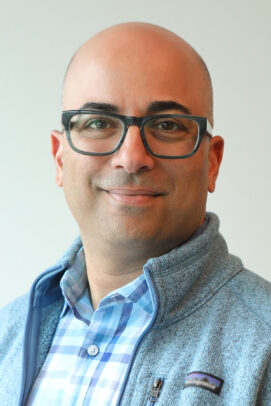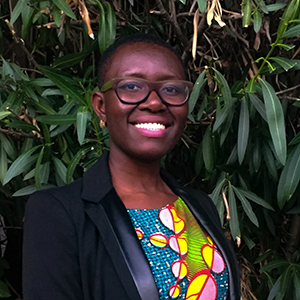Multi-city trial will use community centers to bring treatment to opioid users
A new clinical trial co-led by the University of Illinois Chicago confronts the disparities in treatment for one of today’s highest-risk groups — Black people with opioid use disorder — by collaborating with trusted community partners and locations.
The Better Together trial will utilize nonmedical neighborhood sites such as churches, community centers and homeless shelters to establish and maintain patients on buprenorphine, an effective medical treatment for opioid dependence. UIC will lead the Chicago arm of the National Institute on Drug Abuse study, with additional sites in Washington, D.C., and Miami overseen by Howard University and the University of Miami.
Supported by the National Drug Abuse Treatment Clinical Trials Network, the study will test a community-engaged, hub-and-spoke model of providing treatment to people with opioid use disorder, with participants receiving counseling and peer support at local neighborhood locations supported by remote prescription and management of buprenorphine from university physicians via telehealth.
“We know that there are evidence-based, lifesaving interventions that work to treat opioid use disorder,” said Dr. Niranjan Karnik, visiting professor of psychiatry at UIC and one of the trial’s lead investigators. “The difficulty is getting them to the people who need them the most.”
Within the broader opioid crisis, Black people suffer drug overdose deaths at a higher rate than other racial groups and lag in the use of proven addiction treatments. Experts cite health care access, the stigma against people who use opioids and mistrust of the medical system as significant barriers to reaching these at-risk patients and enrolling them in care.
Recent policy changes have made it easier to prescribe and distribute buprenorphine, a medication that substitutes for powerful drugs such as heroin or oxycodone and safely decreases craving and withdrawal symptoms. But to be effective, patients must take the drug daily and maintain regular contact with a medical professional for refills and monitoring. Retention is critical for successful treatment.
“This is a medication that you’re probably going to stay on for a very long time,” said J. Konadu Fokuo, visiting clinical instructor at UIC and another investigator on the trial. “We want to get people to a place where they have the momentum to stay on the medication and feel comfortable enough to advocate for their own wellness.”
By moving care from medical centers to community locations, the researchers expect multiple benefits for patients receiving treatment for their opioid use disorder. For many people, it will reduce the distance they need to travel for regular visits. Alongside intermittent remote check-ins with physicians, support will also be provided in a comfortable, familiar environment by peers from the patient’s community.
Once accepted to the study, patients will follow a treatment program, known as the Better Together recovery guide, with a peer recovery support specialist and community retention and engagement specialists, often people who have gone through recovery themselves.
“We’re using peers to help people feel a little bit more comfortable coming in,” Fokuo said. “One of the things we know about substance use disorders is that, because it is a stigmatized condition, it comes with a lot of shame. This program gives patients an opportunity to interact with a medical setting where you’re not necessarily feeling stigmatized.”
Participants in the Better Together trial will be compared against a control group receiving buprenorphine and related support in a standard-of-care medical clinic environment. Researchers will examine not only the medical outcomes of the treatment, but also factors such as retention and patient satisfaction that would help effectively serve opioid users over the long term.
“Our theory is that the group with the recovery guide and the community-based engagement is going to be much more likely to have patients who stay in treatment, continue to take buprenorphine and continue to show a better quality of life,” Karnik said.
The Better Together trial will concentrate its initial activities in areas of Chicago hard hit by the opioid crisis. In the first phase of the study, the research team will form a community advisory board and select key partner organizations and potential treatment sites embedded within the priority neighborhoods.
“It’s an opportunity for researchers to think a little bit outside of the box and think more in line with what the community is interested in,” Fokuo said. “It’s prioritizing the need and doing it in a way that is community-focused, not just research-focused.”
The trial is funded by NIDA grant 3UG1DA049467-05S1 and is part of the National Institutes of Health Helping to End Addiction Long-term (HEAL) Initiative. UIC will receive roughly $5 million over five years for its portion of the study.
More information about the study will be available at the NIDA Clinical Trials Network website under CTN-0144. Initiation of the research is pending UIC Institutional Review Board approval.


